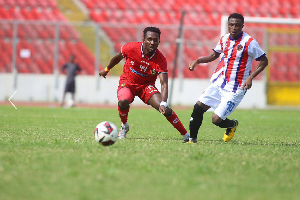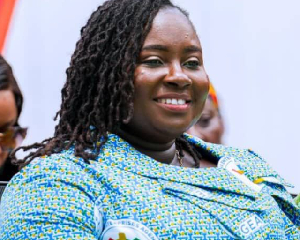Wa, March 5, GNA - Several groups of People with Disabilities (PWDs)= in the Upper West Region are unable to access the two per cent share of the District Assembly Common Fund (DACF) allocated to them.
This was due to the inability of some authorities in the district assemblies to open accounts at the banks for the fund to be paid in for their use. Mr Ibrahim Saani, Secretary to the Resource Centre in Wa, made this known at a regional interface meeting to discuss the findings of Send-Ghana= , a non-governmental organisation working to promote good governance and the equality.
He said apart from the Wa Muncipal and Jirapa District Assemblies that had opened accounts for the fund to be paid in, the remaining seven districts were yet to comply. "Several of our people are seen in the streets begging to raise mone= y to keep body and soul together, yet some money allocated to us to resource ourselves is sitting somewhere because of somebody's lackadaisical behaviour,' he said. Mr Saani said even though the Ministry of Local Government and Rural Development had written to all Metropolitan, Municipal and District Assemblies (MMDAs) to open accounts at the National Investment Bank for the fund to be operative, some authorities were still adamant about the directive. Mr Saani described the behaviour of the authorities as 93very bad" because they were sabotaging the economies and livelihoods of Persons with Disabilities (PWDs) and called on them to have a second look at the directive.
Send-Ghana's main research findings among others centred round; Management and Utilisation of DACF for PWDs and Members of Parliament, Awareness and Access to Information, Community Participation and Disbursement and Utilisation of DACF".
Mr Eugene Yirbour, a Project Coordinator of Send-Ghana, who presented the findings, said access to the two percent share of the DACF for PWDs fro= m 2003 to 2008 was less than one-third. In 2009, access in the Northern Region was more than 50 percent but Upper West, Upper East and Greater Accra Regions were less than one-third. He however attributed the relative high access in 2009 to the establishment of the National Council for PWDs that contributed to that effort. About 44 per cent of PWDs who successfully accessed DACF expended it o= n the celebration of the International Day for the Disabled and attendance of meetings and conferences.
Mr Yirbour said contrary to guidelines, about 55 per cent of MMDAs sampled did not have the mandated Disability Fund Management Committees in place, which were pre-requisite to accessing the PWDs' share of the DACF. "About two-thirds of the MMDAs did not have separate bank accounts f= or the management of the PWDs share of the DACF and the absence of these bank accounts prevents disbursement of the PWDs share of the DACF," the study revealed. The report also revealed that 36 per cent of Members of Parliament wer= e in conflict with their respective District Chief Executives over the appropriation of the MPs' fund since 2005, which, they said, had adversel= y affected the implementation of some projects in the constituencies. Mr Yirbour said out of 29 district assemblies that responded to the study, more than two thirds did not provide their Medium Term Development Plans and supplementary budgets for the period 2005-2009 and none of them could provide information on DACF expenditure returns. The study also showed that about 50 per cent of community members sampled did not believe that MMDAs had effectively used the DACF to address their development needs.
According to them their limited involvement in DACF projects had made it difficult for the MMDAs to be responsive to their needs. Send Ghana suggested that the Ministry of Local Government and Rural Development should ensure that all MMDAs complied with the guidelines for the disbursement and utilisation of the DACF for the PWDs. The MMDAs should develop innovative measures that would ensure access to formation on DACF by citizens to elicit their support and participation in the implementation of DACF projects.
Regional News of Saturday, 5 March 2011
Source: GNA
















